Trans Urethral Resection of Prostrate (TURP) Cost in Lithuania from top hospitals starts from LTL 3680 (USD 4000)approx
.| Country | Cost | Local_currency |
|---|---|---|
| India | USD 3500 | India 291025 |
| Israel | USD 12500 | Israel 47500 |
| Lithuania | USD 4000 | Lithuania 3680 |
| Malaysia | USD 7000 | Malaysia 32970 |
| Poland | USD 4200 | Poland 16968 |
| South Korea | USD 6000 | South Korea 8056140 |
| Spain | USD 11000 | Spain 10120 |
| Thailand | USD 5800 | Thailand 206770 |
| Tunisia | USD 8000 | Tunisia 24880 |
| Turkey | USD 5050 | Turkey 152207 |
| United Arab Emirates | USD 5560 | United Arab Emirates 20405 |
| United Kingdom | USD 7500 | United Kingdom 5925 |
Treatment cost
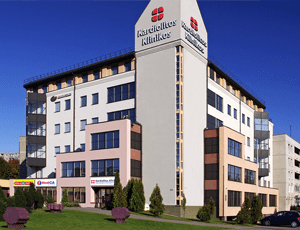
Kardiolita Hospital, Vilnius located in Vilnius, Lithuania is accredited by JCI. Also listed below are some of the most prominent infrastructural details:

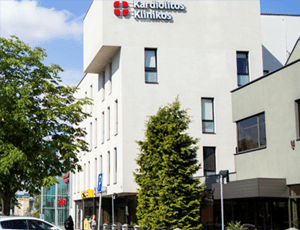
Apart from in-detail treatment procedures available, Kardiolita Hospital, Kaunas located in Kaunas, Lithuania has a wide variety of facilities available for International Patients. Some of the facilities which are provided by them are Accommodation, Airport Transfer, Choice of Meals. Also listed below are some of the most prominent infrastructural details:
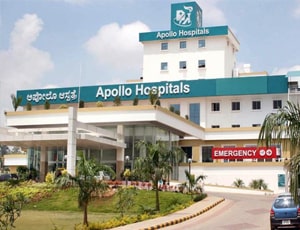
Types of Trans Urethral Resection of Prostrate (TURP) in Apollo Hospitals Bannerghatta and its associated cost
| Treatment Option | Approximate Cost Range (USD) | Approximate Cost Range (INR) |
|---|---|---|
| Trans Urethral Resection of Prostate (TURP) (Overall) | 3383 - 5686 | 274455 - 456287 |
| Conventional TURP | 1679 - 3971 | 138668 - 317780 |
| Laser TURP (GreenLight) | 2254 - 4970 | 185262 - 420831 |
| Laser TURP (Holmium) | 3314 - 5609 | 271715 - 470862 |
| Bipolar TURP | 2787 - 4578 | 227295 - 375124 |
DOCTORS IN 13 SPECIALITIES
FACILITIES & AMENITIES
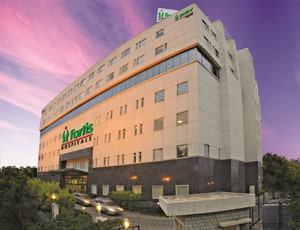
Types of Trans Urethral Resection of Prostrate (TURP) in Fortis Hospital and its associated cost
| Treatment Option | Approximate Cost Range (USD) | Approximate Cost Range (INR) |
|---|---|---|
| Trans Urethral Resection of Prostate (TURP) (Overall) | 3057 - 5070 | 250665 - 414365 |
| Conventional TURP | 1517 - 3564 | 124302 - 291877 |
| Laser TURP (GreenLight) | 2020 - 4566 | 166218 - 374347 |
| Laser TURP (Holmium) | 3033 - 5064 | 248560 - 417380 |
| Bipolar TURP | 2532 - 4080 | 207309 - 332965 |
DOCTORS IN 12 SPECIALITIES
FACILITIES & AMENITIES
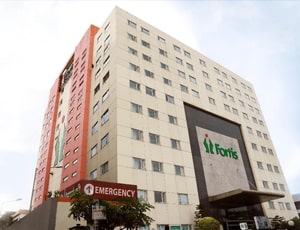
Types of Trans Urethral Resection of Prostrate (TURP) in Fortis Hospital and its associated cost
| Treatment Option | Approximate Cost Range (USD) | Approximate Cost Range (INR) |
|---|---|---|
| Trans Urethral Resection of Prostate (TURP) (Overall) | 3038 - 5087 | 249090 - 414900 |
| Conventional TURP | 1526 - 3540 | 125448 - 291684 |
| Laser TURP (GreenLight) | 2025 - 4565 | 167108 - 375988 |
| Laser TURP (Holmium) | 3050 - 5071 | 250598 - 415717 |
| Bipolar TURP | 2546 - 4062 | 207733 - 334078 |
DOCTORS IN 12 SPECIALITIES
FACILITIES & AMENITIES

Types of Trans Urethral Resection of Prostrate (TURP) in Sarvodaya Hospital and Research Centre and its associated cost
| Treatment Option | Approximate Cost Range (USD) | Approximate Cost Range (INR) |
|---|---|---|
| Trans Urethral Resection of Prostate (TURP) (Overall) | 3050 - 5063 | 249385 - 416656 |
| Conventional TURP | 1527 - 3560 | 125290 - 289985 |
| Laser TURP (GreenLight) | 2038 - 4549 | 166498 - 375102 |
| Laser TURP (Holmium) | 3044 - 5081 | 249489 - 414571 |
| Bipolar TURP | 2525 - 4072 | 207323 - 332231 |
DOCTORS IN 14 SPECIALITIES
FACILITIES & AMENITIES
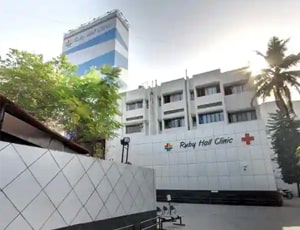
Types of Trans Urethral Resection of Prostrate (TURP) in Ruby Hall Clinic and its associated cost
| Treatment Option | Approximate Cost Range (USD) | Approximate Cost Range (INR) |
|---|---|---|
| Trans Urethral Resection of Prostate (TURP) (Overall) | 2793 - 4621 | 231761 - 383262 |
| Conventional TURP | 1381 - 3266 | 115126 - 266693 |
| Laser TURP (GreenLight) | 1892 - 4233 | 151981 - 344143 |
| Laser TURP (Holmium) | 2844 - 4639 | 233478 - 389420 |
| Bipolar TURP | 2320 - 3718 | 190980 - 309049 |
DOCTORS IN 13 SPECIALITIES
FACILITIES & AMENITIES
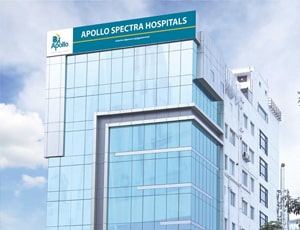
Types of Trans Urethral Resection of Prostrate (TURP) in Apollo Spectra Hospitals and its associated cost
| Treatment Option | Approximate Cost Range (USD) | Approximate Cost Range (INR) |
|---|---|---|
| Trans Urethral Resection of Prostate (TURP) (Overall) | 3039 - 5097 | 249728 - 416645 |
| Conventional TURP | 1522 - 3540 | 125188 - 292492 |
| Laser TURP (GreenLight) | 2024 - 4571 | 165746 - 375337 |
| Laser TURP (Holmium) | 3056 - 5084 | 249851 - 415585 |
| Bipolar TURP | 2534 - 4044 | 207915 - 332802 |
DOCTORS IN 10 SPECIALITIES
FACILITIES & AMENITIES
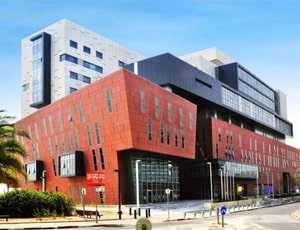
Assuta Hospital located in Tel-Aviv, Israel is accredited by JCI. Also listed below are some of the most prominent infrastructural details:
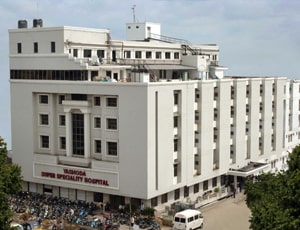
Types of Trans Urethral Resection of Prostrate (TURP) in Yashoda Hospital, Malakpet and its associated cost
| Treatment Option | Approximate Cost Range (USD) | Approximate Cost Range (INR) |
|---|---|---|
| Trans Urethral Resection of Prostate (TURP) (Overall) | 3052 - 5052 | 250395 - 417941 |
| Conventional TURP | 1521 - 3548 | 124651 - 290130 |
| Laser TURP (GreenLight) | 2028 - 4548 | 165980 - 374902 |
| Laser TURP (Holmium) | 3039 - 5085 | 248866 - 416314 |
| Bipolar TURP | 2545 - 4078 | 207085 - 331892 |
DOCTORS IN 10 SPECIALITIES
FACILITIES & AMENITIES
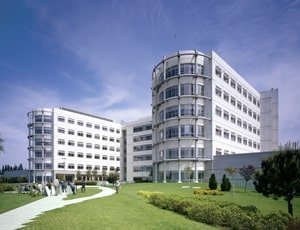
Types of Trans Urethral Resection of Prostrate (TURP) in Anadolu Medical Center and its associated cost
| Treatment Option | Approximate Cost Range (USD) | Approximate Cost Range (TRY) |
|---|---|---|
| Trans Urethral Resection of Prostate (TURP) (Overall) | 4562 - 7454 | 138230 - 219799 |
| Conventional TURP | 2212 - 5636 | 68889 - 171112 |
| Laser TURP (GreenLight) | 2824 - 6640 | 85644 - 199007 |
| Laser TURP (Holmium) | 4566 - 8023 | 136604 - 240471 |
| Bipolar TURP | 2841 - 6874 | 85575 - 199331 |
DOCTORS IN 12 SPECIALITIES
FACILITIES & AMENITIES
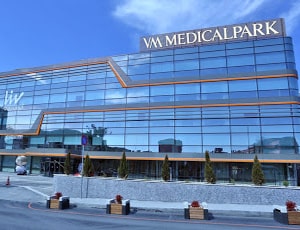
Types of Trans Urethral Resection of Prostrate (TURP) in I.A.U VM Medical Park Florya Hospital and its associated cost
| Treatment Option | Approximate Cost Range (USD) | Approximate Cost Range (TRY) |
|---|---|---|
| Trans Urethral Resection of Prostate (TURP) (Overall) | 4450 - 7456 | 133571 - 221445 |
| Conventional TURP | 2233 - 5506 | 67482 - 165956 |
| Laser TURP (GreenLight) | 2846 - 6704 | 83132 - 202139 |
| Laser TURP (Holmium) | 4447 - 8011 | 138624 - 240474 |
| Bipolar TURP | 2770 - 6848 | 85316 - 206398 |
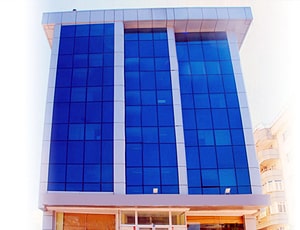
Types of Trans Urethral Resection of Prostrate (TURP) in Medical Park Canakkale Hospital and its associated cost
| Treatment Option | Approximate Cost Range (USD) | Approximate Cost Range (TRY) |
|---|---|---|
| Trans Urethral Resection of Prostate (TURP) (Overall) | 4439 - 7218 | 135049 - 221715 |
| Conventional TURP | 2250 - 5530 | 68677 - 169644 |
| Laser TURP (GreenLight) | 2817 - 6824 | 84374 - 203574 |
| Laser TURP (Holmium) | 4472 - 7750 | 135933 - 237205 |
| Bipolar TURP | 2771 - 6882 | 83076 - 205389 |
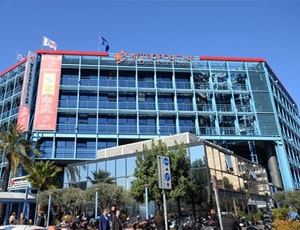
Apart from in-detail treatment procedures available, Metropolitan Hospital located in Pireas, Greece has a wide variety of facilities available for International Patients. Some of the facilities which are provided by them are Accommodation, Airport Transfer, Choice of Meals, Interpreter, SIM, TV inside room. Also listed below are some of the most prominent infrastructural details:
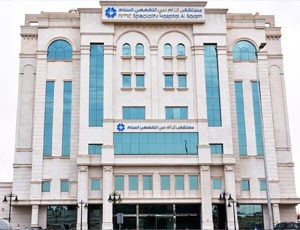
Apart from in-detail treatment procedures available, NMC Specialty Hospital Al Salam located in Riyadh, Saudi Arabia has a wide variety of facilities available for International Patients. Some of the facilities which are provided by them are Accommodation, Airport Transfer, Choice of Meals, Interpreter, SIM, TV inside room. Also listed below are some of the most prominent infrastructural details:
The enlarged prostate gland can become a concern for men after a certain age, leading to difficulties with urination. This issue often prompts medical professionals to recommend transurethral resection of the prostate (TURP) surgery.
The prostate gland undergoes two phases of growth as men age. The initial growth phase occurs during puberty when the gland doubles in size. The second phase of growth typically occurs after the age of 25, reaching its final size, which generally remains constant throughout life. However, in cases of benign prostatic hyperplasia, the prostate gland may further enlarge.
As the gland enlarges, it compresses the urethra, causing the bladder wall to thicken. Over time, the bladder weakens, resulting in incomplete urine emptying and allowing urine to remain in the bladder. Additionally, the narrowing of the urethra exacerbates urinary difficulties, leading to recurring issues with urination.
As of now, it is not totally clear why most men develop BPH but it mainly indicates an imbalance of hormones and sexual activities with advanced age. Apart from that, there can be urinary tract infection, narrowing of the urethra known as urethral stricture, inflammation of the prostate, bladder or stones in the kidney, nerve problems in controlling the bladder, or scarring in the neck of the bladder as a result of previous surgery.
The following are some of the symptoms of BPH:
Some of these above symptoms can occur even in men whose prostate has not enlarged significantly.
Patients are required to stay in the hospital for at least one to two days after the procedure. Patients who undergo TURP are required to have a catheter in place for urine drainage for at least a few days. The catheter is removed when the swelling reduces and the patient is in a position to urinate by himself.
It is normal to experience blood in the urine right after the surgery, pain at the time of urination, and frequent urination after the surgery. However, you must contact the doctor in case you are unable to urinate at all, develop fever, or notice the presence of clots in the urine.
After the surgery, you are required to:
Ask your healthcare adviser for the best multiple options and choose the one that meets your expectations
The cost of Trans Urethral Resection of Prostrate (TURP) in Lithuania starts from $4000. Many multispeciality hospitals in Lithuania that are State Health Care Accreditation Agency (VASPVT) certified are approved and most sought after for treating international patients with Trans Urethral Resection of Prostrate (TURP)
The Trans Urethral Resection of Prostrate (TURP) package cost in Lithuania varies from one hospital to another and may offer different benefits. There are many hospital that cover the cost of pre-surgical investigations of the patient in the treatment package. The Trans Urethral Resection of Prostrate (TURP) procedure in Lithuania includes the fees of the surgeon, hospitalization and anesthesia as well. Post-surgical complications, new findings and delayed recovery may have an impact on the total Trans Urethral Resection of Prostrate (TURP) cost in Lithuania.
Trans Urethral Resection of Prostrate (TURP) in Lithuania is offered by multiple hospitals across the country. For quick reference, the following are some of the leading hospitals for Trans Urethral Resection of Prostrate (TURP) in Lithuania:
After discharge from the hospital, the patient has to stay for another 14 days in the country for complete recovery. This time frame is important to ensure that the surgery was successful and the patient is fit to fly back.
There are certain additional cost that the patient has to pay apart from the Trans Urethral Resection of Prostrate (TURP) cost. These charges starts from USD 50 per person.
Some of the cpopular cities in Lithuania that offer Trans Urethral Resection of Prostrate (TURP) include the following:
The patient has to spend about 2 days in the hospital after Trans Urethral Resection of Prostrate (TURP) for proper recovery and to get clearance for discharge. The patient is subjected to several biochemistry and radiological scans to see that everything is okay and the recovery is on track. After making sure that patient is clinically stable, discharge is planned.
There are more than 2 hospitals that offer Trans Urethral Resection of Prostrate (TURP) in Lithuania. These hospitals have propoer infrastructure as well as offer good quality of services when it comes to Trans Urethral Resection of Prostrate (TURP) These hospitals comply with all the rules and regulations as dictated by the regulatory bodies and medical association in Lithuania
Some of the most sought after doctors for Trans Urethral Resection of Prostrate (TURP) in Lithuania are: